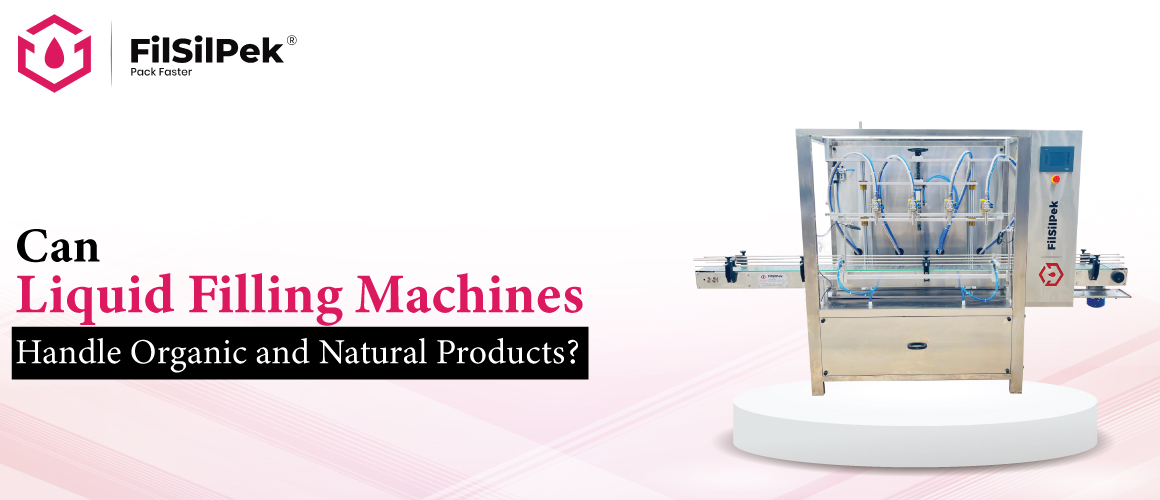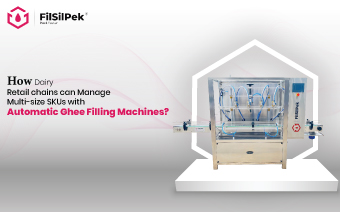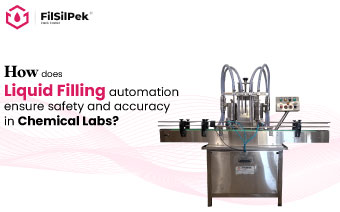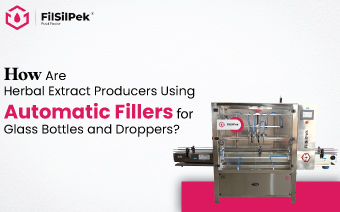Can Liquid Filling Machines Handle Organic and Natural Products?
The global demand for organic and natural products has surged significantly in recent years, driven by consumer preferences for healthier, more sustainable options. From skincare to beverages, this shift toward natural ingredients has reshaped multiple industries. According to market research, the organic products sector is projected to grow by over 10% annually, presenting both opportunities and challenges for manufacturers. Organic products, often free from synthetic preservatives, are more vulnerable to spoilage, contamination, and ingredient separation, which requires a more controlled and precise production process to maintain their integrity.
In response, manufacturers are increasingly relying on liquid filling machines to efficiently package these products while preserving their quality. These machines, once designed for conventional liquid products, are now evolving to meet the unique requirements of organic and natural goods. But can they truly handle the complexities of filling organic liquids, from delicate plant-based extracts to viscous natural oils?
In this article, we explore how modern liquid filling technology is adapting to ensure that organic products are safely and consistently packaged without compromising their purity or effectiveness.
Why Do Organic and Natural Products Require Special Attention?
Organic and natural products require special attention due to their composition, which typically excludes synthetic preservatives, stabilisers, and artificial additives. This absence of chemical agents makes them more prone to contamination, spoilage, and degradation, especially when exposed to air, heat, or improper handling during production. For instance, organic juices or plant-based oils can separate or oxidise quickly if not packaged under optimal conditions.
The varying viscosities of these products demand precise machinery settings, as the texture and flow of organic liquids differ significantly from standard commercial products. Also, organic certifications often mandate stringent handling and packaging protocols to ensure product purity.
Liquid filling machines must be made from food-grade materials like stainless steel to prevent any reaction with the organic components, and they must be designed for easy cleaning to avoid cross-contamination. Given the nature of organic ingredients—many of which are sensitive to temperature and exposure—the entire filling process must be highly controlled. This ensures that the final product retains its efficacy, shelf life, and compliance with organic standards, making it essential for manufacturers to use machines that cater specifically to these needs.
Liquid Filling Machines: How Do They Solve the Problem?
Liquid filling machines have become indispensable in the packaging of organic and natural products, addressing the specific challenges posed by their delicate nature. These machines are designed to handle the unique characteristics of organic liquids, such as varying viscosities, sensitivity to air and heat, and the absence of preservatives. By offering precise control over fill volumes, customizable settings, and built-in hygienic features, modern liquid filling systems ensure that organic products are packaged efficiently while maintaining their quality and integrity. This level of control not only reduces wastage but also complies with strict organic certification standards, making the machines an essential tool for manufacturers aiming to preserve the purity of their products.
Key Technical Features of Liquid Filling Machines for Organic Products
- Dynamic Viscosity Adjustment Mechanisms: Integrated pump systems, such as piston or peristaltic pumps, allow machines to handle a wide range of product viscosities, from low-viscosity liquids like essential oils to high-viscosity products like organic creams or gels, ensuring consistent flow and accurate filling.
- 316L Stainless Steel and Non-Reactive Surfaces: Utilisation of high-grade, corrosion-resistant stainless steel (316L) and FDA-compliant seals (like EPDM or PTFE) ensures that the machine’s contact parts do not react with sensitive organic ingredients, preserving the product’s purity and preventing contamination.
- CIP (Clean-in-Place) and SIP (Sterilise-in-Place) Systems: Advanced liquid filling machines are equipped with automated cleaning and sterilisation systems, allowing for seamless, hygienic maintenance between production runs. This reduces downtime while maintaining strict sanitation standards, which is crucial for organic products prone to contamination.
- Closed-Loop Nitrogen Purging: Integrated nitrogen flushing systems create a controlled atmosphere inside the packaging, displacing oxygen to prevent oxidation of sensitive organic compounds. This technology extends the shelf life of oxygen-sensitive products like cold-pressed juices or natural oils.
- High-Precision Flow Metres and Servo-Controlled Fillers: Machines with magnetic or mass flow metres and servo-driven filling mechanisms provide extremely precise dosing, ensuring that even minor variations in product volume or consistency do not affect the fill accuracy. This level of precision is critical for maintaining product uniformity and meeting organic certification standards.
- Adaptable Filling Heads and Multi-Lane Options: Machines are equipped with modular, multi-lane filling heads, allowing simultaneous filing of multiple containers with different product types or packaging sizes. This flexibility is especially important for manufacturers handling small-batch organic products or a diverse range of natural formulations.
- Temperature and pH Control Integration: Some systems offer real-time monitoring and adjustment of product temperature and pH during filling, ensuring that sensitive organic formulations (such as probiotic drinks or live enzyme products) are maintained within their optimal conditions throughout the filling process, protecting their bioactivity.
Organic Products and the Challenge for Liquid Filling Machines
When it comes to organic and natural products, several challenges can arise:
- Product Viscosity: Many organic products, like natural juices or oil-based skincare items, vary in thickness. This requires machines that can adjust to different viscosities without clogging or causing delays in production.
- Avoiding Contamination: Organic products are often preservative-free, which makes them more susceptible to bacterial contamination. Liquid filling machines must be constructed from food-grade, non-reactive materials like stainless steel to prevent any reaction or contamination during the filling process.
- Consistency in Filing: Organic and natural products can sometimes separate, especially if they contain oil and water-based ingredients. Machines need to handle this separation and ensure a consistent fill every time without affecting the product’s quality.
- Packaging Sensitivity: Organic products may require specific types of packaging, like glass bottles or BPA-free plastic containers. Liquid filling machines should be adaptable to handle these packaging requirements without damaging the containers or affecting the product.
Are Filsilpek’s Liquid Filling Machines Up to the Task?
The good news is that our modern liquid filling machines can handle organic and natural products effectively. With the advancements in technology, our machines and filling technologies are equipped with features designed to handle these sensitive products. For example:
- Customizable Settings: Filsilpek’s liquid filling machines offer adjustable speed, pressure, and filling volume settings, allowing manufacturers to tailor the process to the specific requirements of organic products.
- Hygienic Design: Machines built with food-grade materials and easy-to-clean components ensure that organic products remain uncontaminated during the filling process.
- Accurate Filling: Machines equipped with sensors and precision filling mechanisms help ensure that even products with varying consistencies are filled correctly without overfilling or underfilling.
Putting it to the end
Liquid filling machines have evolved to meet the unique challenges of organic and natural product packaging, offering precision, hygiene, and flexibility. With advanced features like adjustable viscosity settings, CIP systems, and nitrogen purging, these machines ensure your products are handled with care, maintaining their purity and extending shelf life. Whether you’re packaging natural oils, organic beverages, or preservative-free skincare, the right liquid filling machine can streamline your production while preserving the integrity of your products.
If you’re looking to enhance your organic product packaging, contact our team at [email protected] to learn more about how our liquid filling machines can fit your needs!
How dairy retail chains can manage multi-size SKUs with automatic ghee filling machines?
For dairy retail chains, offering ghee in various pack sizes has become …
How does liquid filling automation ensure safety and accuracy in chemical labs?
Chemical laboratories work with a broad spectrum of substances—acids, solvents, reagents, and volatile..
How Are Herbal Extract Producers Using Automatic Fillers for Glass Bottles and Droppers?
Herbal extract producers are under increasing pressure to meet demand…



